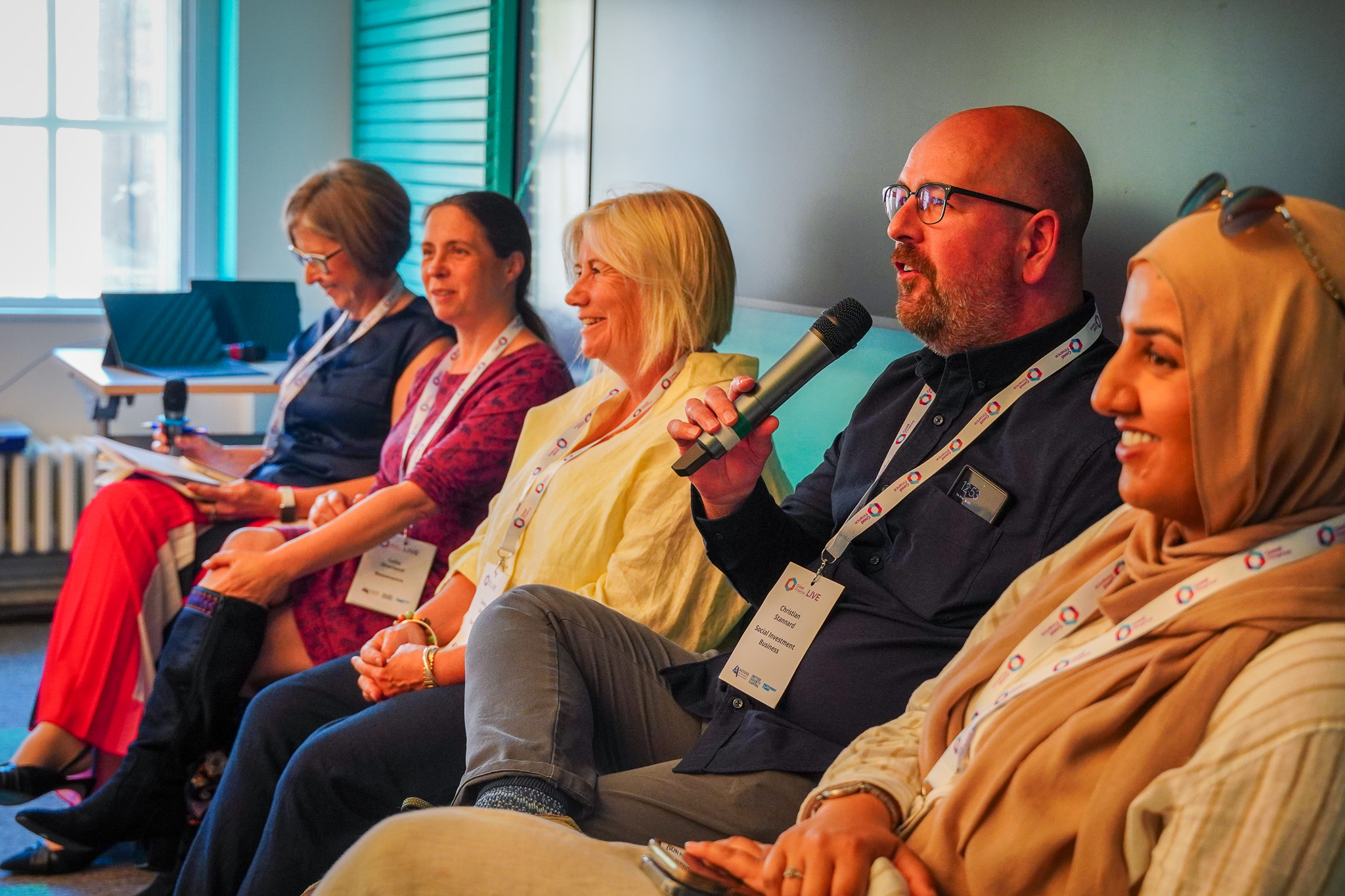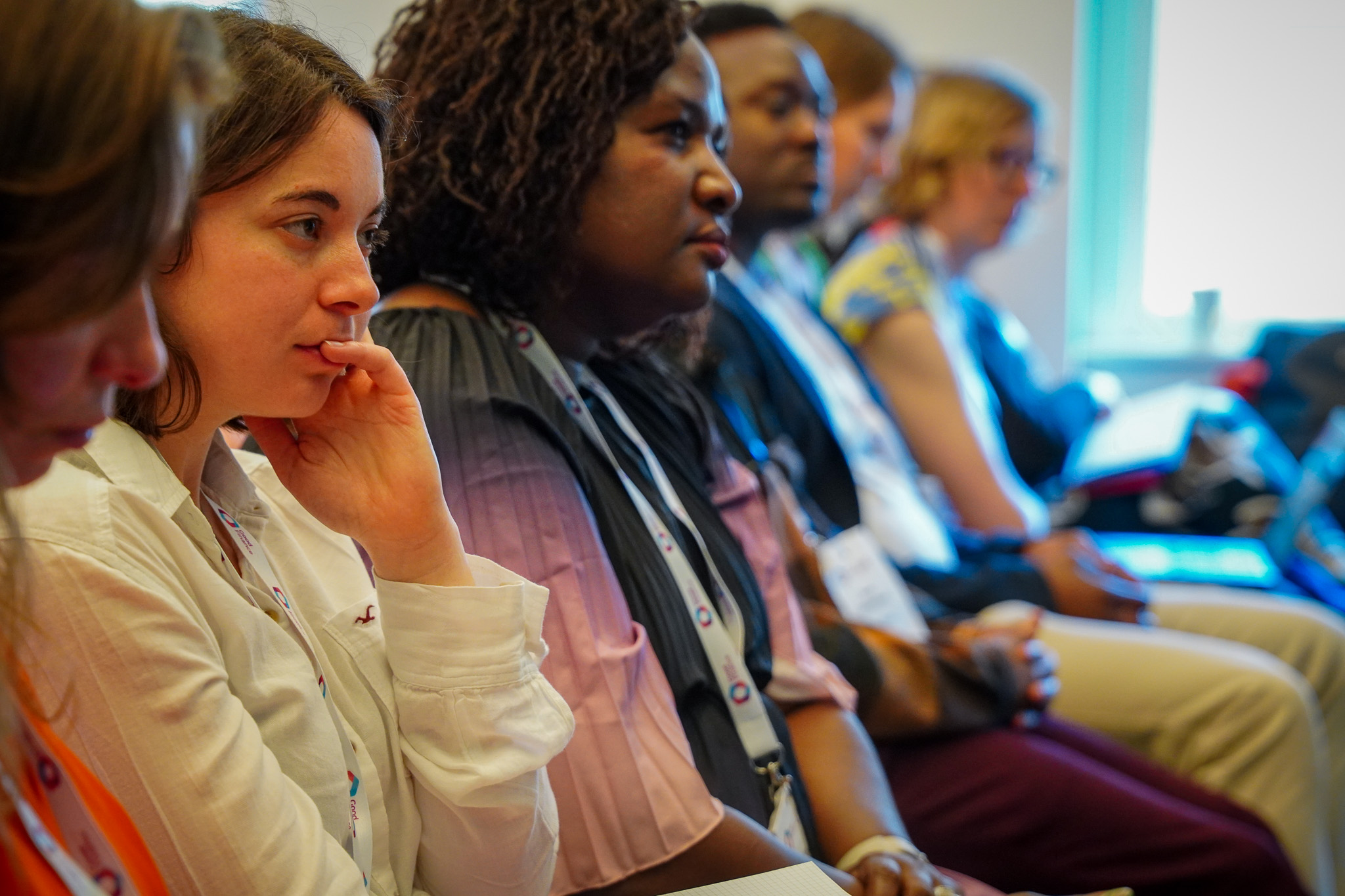Have you ever wondered why some funding applications succeed while others stall? What investors are really looking for when speaking to prospective investees? And what are the key things as a charity or social enterprise you should know when exploring repayable finance for the first time?

Good Finance Live's Ask the Investor panel offered valuable clarity. Bringing together leaders from Big Issue Invest, Charity Bank, Resonance, and Social Investment Business, the session unpacked what social investment really looks like from the investor’s seat. In this blog, we share some of the key insights that emerged, not just for organisations seeking social investment, but for anyone interested in making impact-driven finance more accessible and effective.
Social Investment is about growth, resilience and impact
Social investment isn’t just a financial tool — it’s a way to take ownership of your organisation’s future. Whether it’s acquiring property, growing and innovating, or becoming less reliant on grants, social investment can help social purpose organisations increase their sustainability and impact.
“It’s about controlling your future and controlling your destiny” says Carolyn Sims, Director of Lending at Charity Bank.
But one message came through loud and clear: impact always comes first. Social investors begin by asking, “What difference will this make?”
Finding the right investor is a two-way street
There's an inherent power imbalance when it comes to investment but the days of founders feeling powerless in investor conversations need to end. You’re not just applying, you’re choosing a partner. Investors differ widely in their products, values, and risk tolerance. That means it’s not just about whether you get investment, but who from and whether they're the right fit for your mission, working style, and growth ambitions.
You know your business, your users and your social mission better than anyone and your social investor should be a partner in helping you succeed.
Engage early, even before you feel 'ready'
It's never too early to begin the conversation and you don't need a polished business plan to start talking to social investors. In fact, starting earlier allows you to build relationships and get support in shaping your organisation's journey. Many investors can signpost you to grants like the Reach Fund or incubators that help develop governance, financials, and planning.
Due Diligence is about you, not just your numbers
Numbers matter. But what investors really dig into during due diligence is whether you are resilient, realistic, and responsive. They want to understand the story behind your business model, your connection to the problem you’re solving, and how adaptable you are as things evolve. So yes, you’ll need a solid business model and cash flow forecasts. But equally important? Your mindset, lived experience, and readiness to learn.
“We’re investing in people, not just ideas” says Hana Hussain, Investment Director at Big Issue Invest.

The relationship doesn’t end when the money lands
Social investment is not just a transaction, it's a long-term relationship. Investors expect regular check-ins, especially in the first year. You'll likely share monthly or quarterly management accounts, along with updates on your impact and any challenges. The key? Communication. Don’t disappear between reports. A healthy investor relationship is based on mutual trust, openness, and shared goals.
When things go wrong, transparency is your best asset
“Don’t be afraid to ask for a repayment holiday” shared Leila Shaland, Acting Head of Growth Enterprises at Resonance.
Setbacks are normal. Revenue gets delayed. Contracts fall through. Markets shift. What matters is how you handle it. Investors are often flexible offering repayment holidays, revised terms, or strategic support, if you’re upfront.
The ecosystem is working to support underrepresented founders
The panel acknowledged long-standing inequities in the social investment space and the need for investors to be engaging in the right conversations in communities who have been traditionally underserved.
Encouragingly, funds like the Flexible Finance Fund and Growth Impact Fund have come about in recent years to serve Black and racially minoritised founders, or people with lived experience of inequality. New criteria such as product traction, letters of intent, or pilot results are being used to evaluate early-stage potential, not just financials or trading history.
“We’re always conscious of who isn’t in the room and where we’re not reaching” shared Christian Stannard, Senior Relationship Manager at Social Investment Business.
Have a clear focus
Social investors can be inundated with applications, and ultimately they can't invest in every organisation. Many applications are rejected early, not because they lack potential, but because they’re unfocused, unclear, or misaligned. To maximise the chances of your application being successful the panel advised:
- Do your homework. Understand each fund’s focus.
- Stress-test your application with someone neutral.
- Keep a clean “data room” of key documents ready to share.
If you get to panel or investment committee, your chances of success increase dramatically so take that as a strong sign you're on track. And when an investor says “you’re not quite right for us,” ask who is right. Most social investors are collaborative and will gladly point you in the right direction.
Ultimately, when it comes to navigating social investment remember that you're not alone. Tools and resources (such as those available on the Good Finance website!) and networks are there to support you - don't be afraid to reach out and ask for help.
Social investment isn’t for every organization — and not every investor is right for you. But when the alignment is there, it can be transformational. As one speaker put it: "This is about helping you meet your aspirations, not changing them."
To see the full recording of this session, and other sessions click here.
